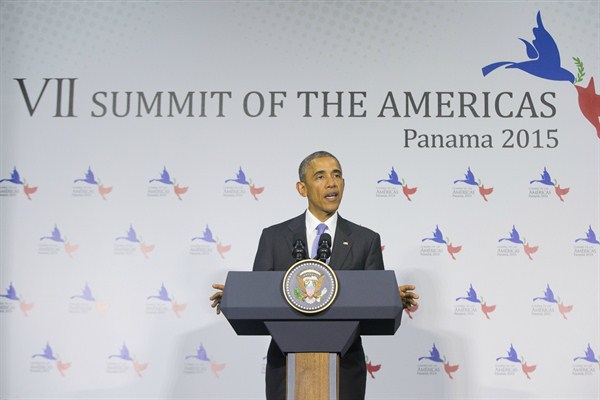At his first Summit of the Americas, in Trinidad and Tobago in 2009, President Barack Obama laid out a vision for U.S. relations in the hemisphere based on partnership and a commitment to pursuing policies that aligned the United States with the needs and interests of the region’s people, particularly those living in its barrios and favelas.
Gone would be the days of overt attempts by Washington to influence Latin America’s political direction or to promote a particular economic course. Countries would decide for themselves which path to pursue, and the United States would cooperate where possible based on mutual self-interest. Where cooperation was difficult, Washington would hold open the door to better relations at any time, meanwhile laying low so as to undercut the caricature of an imperialistic and rapacious United States—a narrative promoted by the region’s populist leaders and others seeking to bolster their own prospects at home and abroad. Simultaneously, the U.S. would encourage relationships with extra-regional actors—including China, though not Russia or Iran—as a means of promoting regional economic diversification and growth.
Under these guiding principles, the Obama administration has labored to show that the United States no longer views Latin America and the Caribbean through the ideological lens of whether an individual nation is “for us or against us” when determining policy and implementation. Pragmatism has become the underlying theme for U.S. engagement with the Americas, an approach explicitly articulated by Vice President Joe Biden and many others as being not about what the United States can do for the Americas, but what it can do with the Americas.

